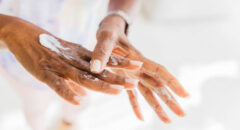
A lot of people avoid the doctor for a variety of reasons. However, as you get older, it’s best to make your health a priority. That starts with getting the right screenings and check-ups for your age. Regardless of which health issue you might have, an early diagnosis is always the key to effective treatment. Let’s look at 10 of them you need to schedule right now.
1. A General Check-Up
At a general check-up, you can expect the doctor to ask about your family, any symptoms that you’re concerned about, and your medical history. There should also be a physical examination that includes checking your blood pressure, heart rate, vision, and hearing.
Depending on your history, the doctor might perform a prostate exam as well. If there are any concerns, they might recommend getting other tests or seeing a specialist.
RELATED: 5 Mammogram Myths Every Woman Should Know
2. A Mammogram
Ideally, people who have a family history of breast cancer shouldn’t wait until 40 to have their first mammogram. It’s never too late to start, though as many women get diagnosed with the disease over the age of 40.
Black women, in particular, can develop breast cancer a little earlier than other ethnicities and are more likely to have adverse outcomes so it’s best to find out as soon as possible. Your doctor might have a suggested schedule for you but an annual check is typical.
RELATED: No Superman: Health Screenings For Black Men at Any Age
3. A PSA Blood Test
Even if you’ve had a prostate exam, a PSA blood test can give a better picture of what’s happening with your prostate. The test looks at the level of certain enzymes in your blood and the results can indicate that you need further tests. Since Black men are at a higher risk of developing prostate cancer, it’s important to get tested.
4. Diabetes Screening
Technically, doctors recommend getting tested for diabetes by 35. This is especially true if there’s a history of the disease in your family or you’re at risk. Blacks fall into the category of being at higher risk than other ethnicities though it’s not completely clear why that is. By age 40, you should definitely check if you’ve developed type 2 diabetes so you can address it quickly.
5. A Pelvic Exam And HPV Test
While you should start having pap smears done as soon as you become sexually active or by the age of 21, more detailed tests are a great idea when you’re older. Even if your pap smear results don’t show any issues, a positive HPV test can indicate that there are potential problems down the road. Your doctor will know exactly how to address them. The pelvic exam can find other conditions that affect older women such as fibroids.
6. A Colonoscopy
It doesn’t get talked about as often as other illnesses but colon cancer is among the top 5 cancers that kill Americans each year. Black people, in particular, have been shown to be at a higher risk than other ethnicities so it makes sense to








